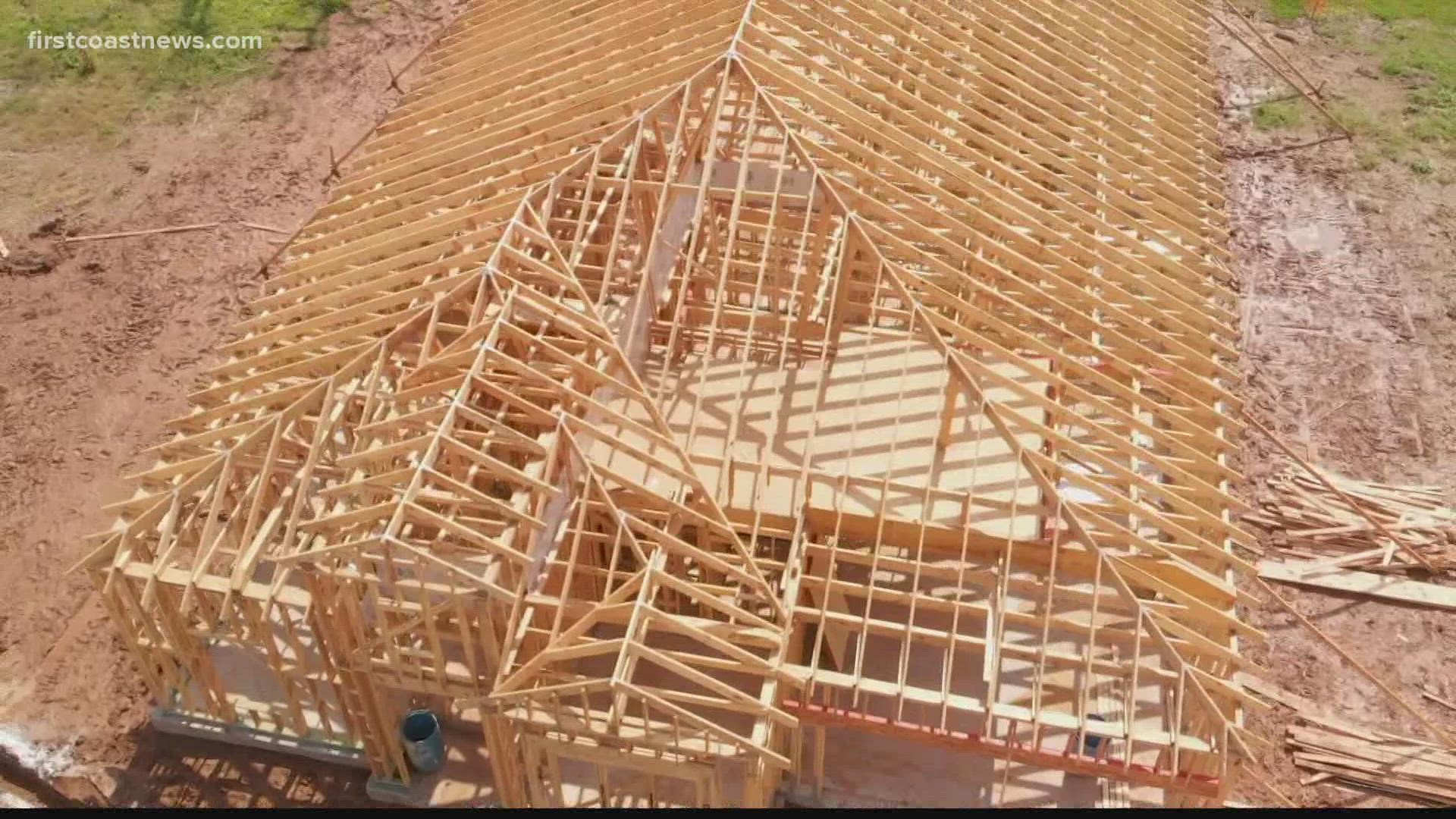ST. AUGUSTINE, Fla. — “How long in Florida is a brand-new house supposed to last?”
It’s not quite a rhetorical question. Annie Marks knows a home should last at least as long as its mortgage – often 30 years.
But after four decades running May Property Management, one of the largest and most established property management groups in the state, she said that’s rarely the case.
“When you get a subdivision that goes in super fast … you can literally drive thru and watch these buildings crumble, and they’re just a few years old,” she said. “I wouldn't buy a new house in Florida. I just wouldn’t.”
Marks oversees hundreds of communities in Northeast Florida, and some 35,000 homes in the state. She’s been in business since 1988. But last week was the first time she’s ever travelled to Tallahassee to speak against a piece of legislation.
“I’m very passionate about doing my very best to be legit and sincere and be a leader in this industry,” she said. “And I felt I had to go. I really did.”
At issue is a pair of bills introduced by local Republican lawmakers, Sen. Travis Hutson and Rep. Clay Yarborough, which reduce the amount of time a builder can be held responsible for “latent,” or hidden, structural defects. That period of liability, known as the statue of repose, used to be 15 years. In 2008, the legislature reduced it to 10 years.
Yarborough’s bill would reduce it to seven; Hutson’s to five.
The lawmakers did not respond to interview requests, but have said in committee meetings that their goal is to reduce frivolous lawsuits and rising insurance claims against builders.
The bill is backed the state's powerful homebuilder and developer lobby. Speaking on behalf of the Florida Home Builders Association, attorney Kari Hebrank told committee members, “one of the biggest problems that the industry is now facing is that subcontractors cannot afford the rising costs of liability insurance as a result of Chapter 558 [construction defect] claims."
Attorney Barry Ansbacher, who handles construction defect claims, said the problem with limiting liability is that most latent defects, like failing stucco or poorly installed windows, take years to manifest.
“You have absolutely no idea that there's something wrong with your home, and the clock runs out,” he said. “By the time you realize there's a problem, the parties who are responsible are completely off the hook. And that doesn't make the problem go away.”
Ansbacher said that although the bill is viewed through the lens of homeowners, it has a broader reach. “These laws do affect all buildings, everything from a nuclear power plant, to a school to a commercial office building.”
Marks says she sees the most problems with volume builders. In a white-hot housing market, she cautions the current building boom is a more of a ticking time bomb. “Common sense would tell you that when you're building these kinds of volumes, that we're going to have people cutting corners,” she said.
The Senate version has already been approved by all committees and now heads next to the full Senate for debate. The House bill will be heard at Tuesday’s Regulatory Reform Subcommittee meeting, which begins at 1 p.m.
Marks urges homeowners pay attention and contact their lawmakers.
“I don't think we're going stop it,” she said. “I don't think there's any stopping this at all. But for the record, I want people to know like, just remember: It's gonna bite you.”

